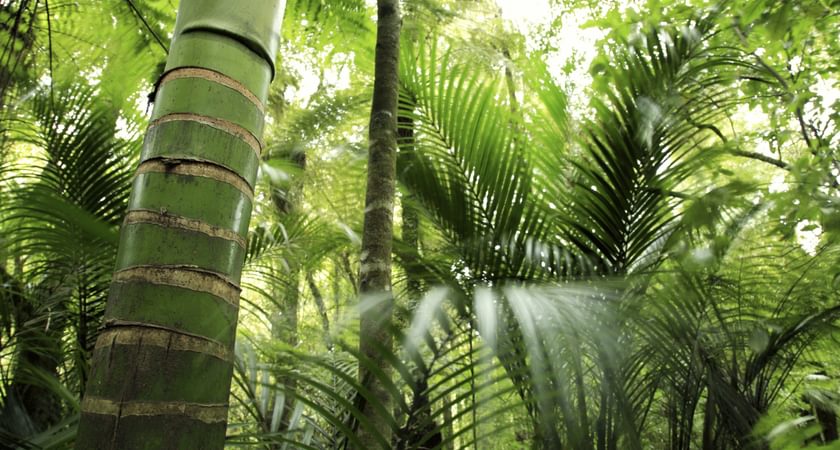Oxford Martin School and The Nature Conservancy
Climate Partnership

The Oxford Martin TNC Climate Partnership was established in 2016 and concluded in 2020. The following page is an archived resource.

The Challenge
The Nature Conservancy (TNC) and the Oxford Martin School have joined forces for a major new scientific partnership to understand better how extreme weather events and human actions will both influence, and be influenced by, our changing climate.
Two distinct problems have emerged from the study of climate change. Firstly, extreme weather events rather than slow changes in average temperatures will have the biggest impact on our environment in the next few years, meaning that we need to understand the changing risks. Secondly, predicting the impact of mitigation efforts is difficult but vital for making the best decisions about land use.
The Oxford Martin TNC Climate Partnership will address the need to improve our understanding of the effects of climate change on ecosystems and the impact of human response to those changes.
The partnership brings together the unique strengths of The Nature Conservancy, with a million members, a network of field projects across five continents, and hundreds of scientific staff deployed on the ground, with the academic strengths of the Oxford Martin School, which has globally-renowned expertise in climate change, the modelling of its impacts, and in better understanding and planning biodiversity conservation.
The combined team has the potential to make major inroads in deepening our understanding of how climate change and our efforts to mitigate it will have an impact on important areas of biodiversity, and of the role that biodiversity can play in mitigation efforts. The research aims to contribute to better understanding of climate change and the long-term conservation of vital ecosystems. The initial focus is on research in South America where work is designed to inform land management decisions, such as reforestation efforts.
The partnership was enabled by a gift from Dr. P. Roy and Mrs. Diana T. Vagelos, based in the US.

Our Approach
Extreme weather events
The first aspect of the Climate Partnership will extend the University of Oxford’s existing weather@home volunteer computing project to the Amazon region and analyse the impact of recent extreme weather events on the Amazonian biosphere, including the El Niño of 2015/2016.
This work ultimately aims to provide a better understanding of the risk of extreme weather events and will be used to assess extreme events while they are still unfolding, looking at what role climate change played in the likelihood of that event.
Tropical biospheres
A second feature of the Climate Partnership will be to develop and apply a complex vegetation model to the Amazon region in order to understand the impacts of extreme weather events on biodiversity and ecosystem function, as well as reforestation efforts.
Building on models already developed by the Oxford Centre for Tropical Forests, the team will seek to develop improved estimates of how carbon stocks, biogeochemical and water cycles and biodiversity will respond to climate change and how tree diversity might ameliorate some aspects of responses to extreme weather.
Resilient land-use
The third focus of the Climate Partnership is to explore robust strategies for achieving Brazil’s reforestation targets.
The team will use new and existing models to integrate conservation priorities with reforestation costs, to explore strategies to assist the Brazilian government’s reforestation ambitions. By modelling the impact that incentives are likely to have in relation to land prices, the team will be able to advise the Brazilian government on how best to plan their reforestation programme.
news
View allStudy highlights climate mitigation potential of encouraging Earth’s forests to regenerate naturally
Allowing forests to grow back naturally should be regarded alongside other measures like large-scale tree-planting as a critical nature-based approach to mitigating climate change, according to a major new study that maps potential above-ground carbon accumulation rates for forest regrowth across the globe.
Stay committed, and change will come!
How do climate change and extreme weather impact our ecosystems?
E.J. Milner-Gulland, Tasso Leventis Professor of Biodiversity, and Yadvinder Malhi, Professor of Ecosystem Science at the University of Oxford and Peter Wheeler, Executive Vice President of TNC, discuss how extreme weather events and human actions will both influence, and be influenced by, our changing climate.

about the nature conservancy

The Nature Conservancy is a leading conservation organization working around the world to conserve the lands and waters on which all life depends. Visit www.nature.org and to learn about the Conservancy’s global initiatives, visit www.nature.org/global.
To keep up with current Conservancy news, follow @nature_press on Twitter.
